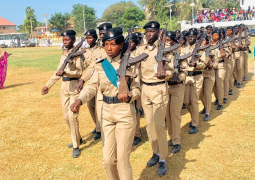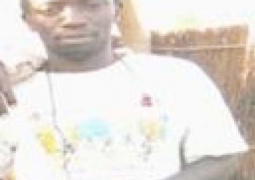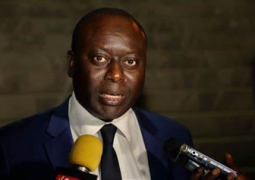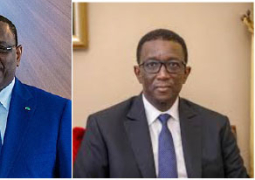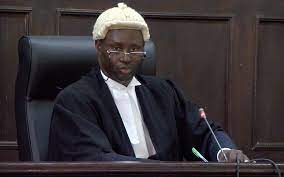
During cross-examination with the plaintiff, Abubacarr Jawara, the CEO of GACH Global, in yesterday’s proceedings, Counsel Conteh asked: “In the video just played in court, you are heard saying the money might be yours?” In response, Mr Jawara stated: “When I saw the viral video on social media, I conducted fact-finding before contacting Abdoulie Dibba. I later confirmed the money was mine,” he clarified.
However, Counsel Conteh interjected: “I want the witness to answer that specifically, as that is what is on the record. I want confirmation on whether he said the money might be his.”
Counsel Drammeh, appearing for the plaintiff, objected: “Counsel cannot compel the witness to say something. He has a right to respond. Let him be allowed to answer the question.”
Conteh continued: “My Lord, with due respect, I request that counsel allows me to proceed with my examination-in-chief. They had ample time with the witness, and I did not interfere. Let me proceed.”
Counsel K. Jallow, representing the first defendant, added: “My Lord, with all due respect, I do not believe Mr Conteh is being fair to the witness. The witness is being questioned about what was seen and heard in a video. Although I represent the first defendant, I have a duty to this Court to ensure fairness. The witness has the right to clarify the context, not merely give a ‘yes’ or ‘no’ answer. It would be unfair to limit him in such a way.”
Counsel Conteh maintained: “Since the witness mentioned this in the video, I must question him about it. I only want confirmation that the witness said the money might be his. My Lord, I want my learned friends to give me space to continue. They questioned the witness without interference from me, so now they should extend the same courtesy. The witness must be asked and must answer my questions, not theirs. He is my witness,” he emphasised.
Lawyer Drammeh responded: “With respect, counsel asked a question, even if it seems straightforward, the witness has a right to answer it in full. You cannot dictate the answer. Let the witness complete his response.”
Justice Jaiteh intervened to restore order: “Once the witness has responded, the statement becomes part of the record,” he said. However, before the Judge concluded his remarks, Counsel Conteh interrupted: “I have to put it to him that he is lying to this Honourable Court.”
Justice Jaiteh cautioned: “We must be very careful with the language we use in court. Decorum must be upheld. Are you the one to compel the witness, or is it the Court? Everything said here is being recorded.”
Counsel Conteh then continued his questioning, saying: “Is it correct that you are the CEO of GACH Global?” Jawara responded affirmatively, stating that he has been in business since 1994.
“Do you import goods into the country?” Jawara confirmed, adding that he imports tomatoes.
Asked how he typically makes payments, Jawara responded: “I make payments through the banks.”
“Is it correct that such payments should be made into a bank account?”
Jawara clarified emphatically that the money in question is separate from the funds he alleges were stolen.
“I put it to you that any payment to Gam-Petroleum should have been made to the company’s account, not to an individual,” said Conteh. Jawara firmly replied: “I don’t know.”
Conteh proceeded to ask: “Mr Jawara, are you in a romantic relationship with the first defendant?”
Jawara responded: “I don’t understand what you’re talking about.” Conteh clarified that he was referring to a love relationship.
Dismayed, Counsel K. Jallow rose and objected: “My Lord, the first defendant’s name is being linked romantically. We vehemently oppose this line of questioning. It is shocking that such a question comes from a learned senior counsel. Romantic relationships are not referenced anywhere in the pleadings. We are bound to address only what is pleaded. My Lord, with all due respect, there must be decorum at the Bar. When a counsel is on their feet, others must wait until they have concluded,” she said, as counsel Conteh attempted to interject.
She continued: “If this romantic matter is not pleaded, it is improper, unfair, and unprofessional to bring it before the Court. We are not only rejecting the question, but we strongly caution counsel against repeating it.”
As Counsel Conteh attempted to respond, Justice Jaiteh intervened once more:
“Counsel, please wait. We must maintain order and decorum. You cannot rise and speak whenever you choose. I do not want to cite you for contempt. You must not speak without leave of the Court or without respecting its authority.”
Ruling on the objection, Justice Jaiteh stated: “I have heard the arguments regarding whether the plaintiff has a romantic relationship with the first defendant. Counsel for the first defendant objected, and counsel for the plaintiff supported that objection. Counsel for the second defendant argued he should be permitted to ask the question, as it was previously asked in a criminal matter.”
“However, this is a civil case, not a criminal trial. The evidence must relate strictly to what is pleaded. The issue of romance and the personal life of the witness are not admissible in these proceedings. Under these circumstances, the objection is sustained, and the question is overruled.”
Counsel Conteh persisted, stating: “I put it to you that you are in love with the first defendant, and that is why you gave her 58 million dalasis in cash to impress her.” Mr. Jawara sharply rejected the claim, emphatically insisting: “That is not true.”
Shifting his line of questioning to criminal proceedings, Counsel B.S. Conteh asked: “Are you aware that this matter was tried as a criminal case at the High Court in 2023?” Mr Jawara replied: “Yes, I’m aware that the government took the matter to court.”
When asked whether he had testified in that trial, the witness responded affirmatively, stating that he had indeed given evidence.
“So, you testified about your money?” Conteh asked. “Yes, I testified,” Mr Jawara confirmed.
Counsel Conteh continued: “And the accused person was acquitted and discharged on a ‘no case to answer’ ruling on all the economic charges, including those relating to your claims.” Jawara replied: “That’s your opinion.”
Conteh pressed further: “The court rejected all your claims of theft against the second accused?” To this, Jawara again responded: “That’s your opinion.”
“I put it to you that had the defendant taken your money, he would have been convicted,” Conteh asserted. Jawara responded: “That is for the court to decide.”
Conteh then remarked: “The government initiated proceedings, and you brought Saikou Drammeh into the matter through third-party proceedings. When Gam-Petroleum pursued a civil claim in the High Court, you included Drammeh in a third-party notice. Is that correct?” Jawara replied: “It is a legal matter, and my counsel is at better place to answer.”


